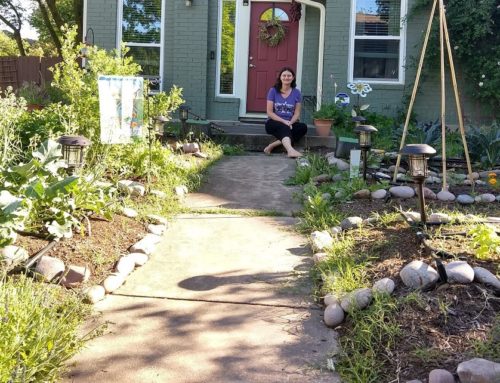It's an interesting time to be practicing aromatherapy – I'm part of the last generation to remember life before the internet, I've used both payphones and rotary phones, and I still have pen pals!
While I do enjoy interacting with folks on social media, here on my website, and through text messaging there's nothing that replaces the authentic interaction of two people talking in real time in the apothecary studio or over a telehealth video meeting.
Which brings me to my practice policy of not offering consults on social media platforms. I have several reasons for this policy and I'm including a holistic viewpoint of why I've chosen to practice in this manner.
Privacy, Confidentiality, and the Law
Here in the United States we have a federal law that protects the healthcare consumer when they are sharing personal information with a practitioner or healthcare provider. It's known as the Health Insurance Portability and Accountability Act, or HIPAA for short. This act has a specific section concerning protected health information, or PHI. PHI is not something that can be confidentially shared through platforms like Facebook, Twitter, Instagram, LinkedIn, or even here in the comments section of this website.
What I do offer clients is a secure platform via my Client Portal where an individual can schedule an appointment, fill out my health history form, and receive an aromatic wellness plan after our consult. The actual consult takes place, by appointment, here in my Austin clinic or over telehealth video so we can see each other and interact authentically in the session.
Treating the Individual
 In my practice I work from the theory of holism. Hippocrates describes this simply:
In my practice I work from the theory of holism. Hippocrates describes this simply:
"It is more important to know what sort of person has a disease than to know what sort of disease a person has."
In order to give someone advice based on my education and clinical experience I need to know what sort of person I am consulting with. What paths to health and wellness they have experienced, what's currently working in their wellness plan and what isn't, the medical diagnoses they've received from medical professionals, their theories and personal experiences, and generally what makes them tick. Without this information I have no reference point to offer advice on incorporating aromatic botanicals into a wellness plan. I don't know what essential oils would be indicated or contraindicated for their wellness plan, and I can't begin to offer them dosing guidelines.
To create an aromatic wellness plan I need access to protected health information, such as:
- client's health history
- list of current medications
- date of birth
- contact information
- health provider's name and contact information
Quality over Quantity
We're in an age where it is very popular to crowdsource for health advice. And while I have no qualms about the sharing of health information I am quite firm in my belief that complementary medicine does not give us a one-size-fits-all.
Dieting is a good example: there is no diet that can improve the health and well-being of every person. Why? We're all constitutionally different and we all have a unique health history. For example, folks with certain neurological health histories might be put on a high fat diet like the ketogenic diet while others with a history of cardiovascular health concerns would be advised against it because it may cause scarring in the heart. While it might seem like everyone is jumping on the keto bandwagon, if this isn't the right diet for you are you comfortable with the potential health risks of kidney problems, cardiovascular issues, or even cancer? And certainly not all protein is created equal!
Aromatherapy is no different: there's not an essential oil for all cases of high blood pressure, headaches, or insomnia. Not every person will respond to the same essential oil in the same way, and on one hand the wrong essential oil might not do anything, on the other hand it could exacerbate the condition or cause problems elsewhere. And certainly not all essential oils on the market will rise above basic purity standards and be effective therapeutically!
So, to recap:
- Protecting Client Confidentiality – it is within my client's legal and ethical rights to anticipate that entrusting their protected health information with me in a consultation will be held confidentially.
- Treating the Individual – working with a client one-on-one to assess their unique wellness concerns and goals and giving them a holistic plan to incorporate aromatics into their routines to support and balance.
- Informed Consent – every client I work with should expect to make an educated decision about whether or not they wish to use aromatic therapies in their wellness plan and have specific tools to do so safely and effectively.
- There's not an oil for that – after spending the last 25 years studying whole-person, individualized wellness, I am not interested in offering my client a lateral replacement to prescription or over the counter drugs. I treat individuals, not symptoms.
If you have any questions regarding this policy or any other policies and practices here at The Barefoot Dragonfly please don't hesitate to get in touch!









Leave a Reply